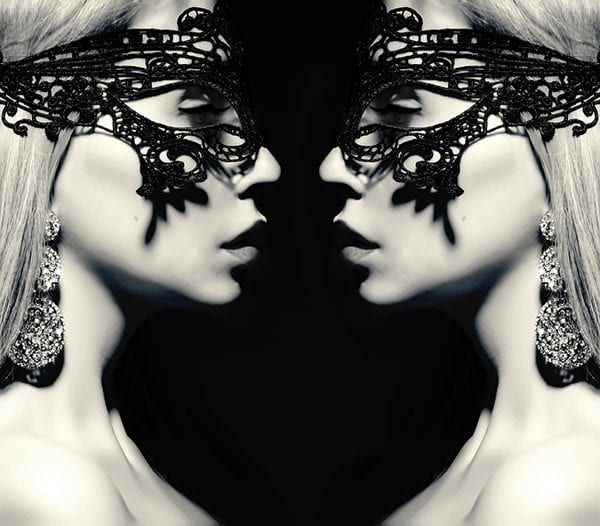Doppelganger: An intriguing phenomenon
Doppelganger: An intriguing phenomenon
Doppelganger: An intriguing phenomenon
-
Hannah
-
Hannah

In my latest novel, Masquerade, the heroine Luz receives a dark warning from a gypsy woman:
Gemini, Gemini … Deceptive Gemini.
You think you know them, blinded by their wit and charm,
Today they love you, tomorrow they may harm.
Chameleons of the Zodiac, they’ll lead your mind astray,
Into their murky waters they’ll drag you as their prey.
One body, two people, one heart, one mind, one soul;
One total complete entity; two sides to the same coin,
Evil lurks in every shadow for mile and mile and mile,
Behind a friendly mask, behind the friendly smile.
Deceit is all around, the curse you cannot break.
And it will last forever because of the mistake.
Unless love and its power can repair and erase
The scalding pain of hatred, and good it will embrace.
Forever rid of malice, at last you will be free.
Dear child, the truth reflects in this duality.
Luz would naturally dismiss such superstition as the crazy prattling of an old and insane hag. But then, she encounters the Gemini. First there is the gypsy, Leandro, whom she meets while riding on the beach. And then, some days later, she meets Andrés, the gentleman who would hire her to work for him. The two are different men in different places… and yet:
Andrés de Calderón was waiting for her, seated at a table half shaded by a vine-trellised loggia, looking suitably cool in a beige linen suit, crisp white shirt and Hermès tie with a gold-printed pattern of Andalucian horses. He rose indolently to greet her, a broad grin revealing a set of perfect white teeth in a copper-bronzed face. Luz’s heart somersaulted twice. She stared at him as if struck by lightning. It can’t be, she thought. Her eyes, her mind were playing havoc with her imagination. The man who stood before her with wraparound dark glasses that completely screened his eyes was a startling echo of Leandro the gypsy, although the latter was swarthy and wild-looking whereas this man was elegant and chiselled as cut glass.
I have always been fascinated by duality. My interest was first piqued by literature. Initially, I think it was The Prince and the Pauper by Mark Twain that made me dream. Do you remember the story? Tom is the pauper, living a terrible life in London, and Edward is the prince, son of King Henry VIII. The two boys meet, realise they are doubles, and decide to switch places.
Later, as I grew into adult books, I found I came across the theme of duality often. Writers for centuries have explored the Gemini, the double, the doppelganger, from Edgar Allen Poe to Elizabeth Gaskell, Charles Dickens to Fyodor Dostoevsky, Henry James to Joseph Conrad, George Gordon Byron to Vladimir Nabokov.
Danger, malice, madness: these are common threads in stories involving doubles. In folklore, the doppelganger has been variably defined as a paranormal phenomenon, a harbinger of bad fortune and an evil twin. Some writers famously claimed to have met their own doubles with dire consequences, such as John Donne, who met his the night his daughter was stillborn, and Percy Bysshe Shelley, who met his shortly before drowning.
But not everyone believes the double to be a portent of darkness. Johann Wolfgang von Goethe, for example, wrote after encountering his double that the‘strange illusion in some measure calmed me’. Today, plenty of people are enthused by the notion of a double. Each February Doppelgänger Week takes place on social media, during which users change their profile pictures to well-known figures they feel they resemble. Some people even eagerly seek out their double; a website exists on which you can pay a fee to have your picture matched through facial recognition software.
What is the appeal of the double – whether as a dark, dangerous symbol or a connection to embrace? I think it comes down to believing in a little bit of magic. Statistically, doubles ought to be very, very rare. Yet doubles cross paths every day. It is a reminder that life is not black and white; it is not only what we can see and hear and touch and rationalise. As Hamlet said to Horatio:
There are more things in heaven and earth, Horatio,
Than are dreamt of in your philosophy.
As for Luz and the doubles she encounters, it will be up to her whether she heeds the gypsy’s dark warning, or opens her heart to love – which is also, after all, a kind of magic.

I loved Masquerade so much I am finding it hard to settle with another book.